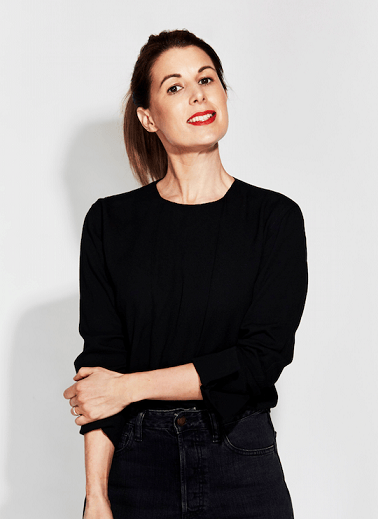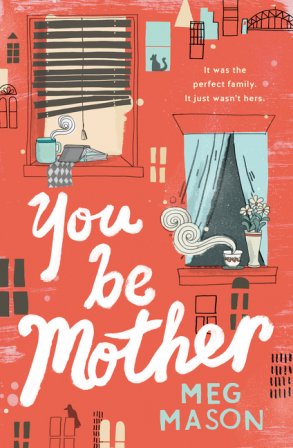
Your first book ‘Say It Again In A Nice Voice’ was a memoir that explored the loneliness of being a young mother. You’ve now written your first novel ‘You Be Mother’ which touches on similar themes and presents an authentic portrayal of the friendship between women and the isolation that can strike at any age. Did you find it difficult to balance the darker sides of the book with the humour so prevalent in the storytelling?
I was so lucky that the characters and the essential plot of ‘You Be Mother’ dropped into my mind fully formed (on an Express Bus) but it took months and many false starts to get the tone right. That was absolutely the most difficult thing. Even though writing humour is my day job, I wanted to write something dark and literary, which is where my own taste in fiction runs and feels like a higher art than comic writing but gosh, blood from a stone.
It wasn’t until my publisher, very gently, asked me why I wouldn’t just do what comes naturally to me. That was such a revelation and after that, I sort of “let” it be funny, while retaining darker aspects of the plot. And really, life is a bit like that, I think. The most desperate, painful things happen and we survive by humour, and with any luck, get some brilliant anecdotes out of it.
You started your career in print media before penning your memoir. How did you find the process of writing fiction? What were the biggest challenges?
I thought writing for magazines and writing fiction would be much of a muchness since it’s all just words really. But I was so hilariously wrong about that. There are so many technical elements to learn, managing the passage of time and learning dialogue and all those things. But actually, hardest for me was feeling like I was allowed to try at fiction, that it was a legitimate pursuit. When you set out, you’re not a novelist after all and to sit down and make worlds that don’t exist and populate them with invented people who all talk to each other – while everyone else is at work, doing their actual jobs – feels a bit mad.
What’s your favourite passage from the book and why? Is there a particular event or scene that was significant for you?
It’s funny that after two years of working on one story, I barely remember a particular scene – and can’t bring myself to open the book and find one, because my face goes completely hot whenever I just-about do. But there are little lines and phrases that I have stayed in my mind, Phil describing herself as in “a brown study” when she feels low, and being “up to dolly’s wax” when she’s full.
The awful mother-in-law character Elaine asks Abi if the name she has chosen for her baby was “absolutely set.” Roger, Elaine’s sweet husband, gets so upset at one point that he had to go outside and “vacuum both cars”. Oh and to Phil’s advice that Abi lie back and think of England when she decides to sleep with her rubbish boyfriend again as a means of getting him back, Abi worries that she’ll think specifically of Croydon and get put off. I’m not sure readers notice small flourishes, but to me, they’re markers of character and their own peculiar ways.
Many new mothers feel the pressure to conform to ideologies and the stereotype of the euphoric parent. Who was the ideal reader you had in mind when working on your draft?
I’ve often heard writers say they write for themselves, which is something I never understood until I had published the memoir. To write with a requisite sense of freedom you have to believe that nobody is ever going to see it (especially friends and family) but after ‘Say It Again in a Nice Voice’ and the reaction to it, public and private, I felt like there were hoards standing behind me as I wrote, looking over my shoulder and saying “ooh, are you sure you want to put that?” So rather than thinking about an ideal reader when it came to ‘You Be Mother’, I worked to convince myself again that there wouldn’t be a single one and it was just for me.
You have hinted at a third book, another novel. Have you made a start and can you give us a hint about its plot?
I made a start on something as soon as this one came out and spent three months mapping it out and messing about with a first chapter before I realised that it was entirely the wrong idea and would never make it past the critical 30,000 word mark (the point at which a bad idea will often fizzle out). One afternoon, I chucked the whole thing and as soon as I had, a better idea dropped in to replace it. But if I try and articulate it so early on, I think I might kill it! Everything I ever write will include births and deaths and marriages, since they’re the most interesting things in life, but the setting and two main characters for this one are new and I am in that lovely fizzing stage of not being able to write fast enough – which will end soon enough, of course.
Who is your biggest fan?
Gosh, I’ve never been asked that before. I only think of myself as a fan of so many other writers, Rachel Cusk and Jenny Offil and Max Porter (as well as McEwan, Tartt, Mantel, Didion, Mitford of course). Apart from my mother who has supported my work since the first novel I wrote aged eight (neat typing was its primary draw), I’ve had lots of women write to me who have little children and feel isolated in their day to day and felt a connection to the way I describe motherhood, with its high-highs and lowest lows. Somebody said ‘Say It Again in a Nice Voice’ made them feel cared for, which was just the loveliest thing and has since become my aim in everything I write.
As a debut fiction author, what has been the most helpful piece of advice that helped you complete your manuscript?
My amazing publisher at HarperCollins gave me two pieces of advice at particularly crucial moments (which is to say, crisis points when I was about to give up because it was so hard.) The first was to trust my instincts, which is probably obvious to everybody else, but I got so het up about whether I was “doing it right,” constantly opening other novels to try and figure out how they worked which, unsurprisingly, didn’t really help things. Once I decided to trust myself, things became more straight-forward.
She also told me at the outset to “write where the heat is,” meaning that one story that you simply have to tell. And in the same way, once you’ve started, a particular scene that is just burning in your mind. It doesn’t necessarily have to come first in the book, but once you’ve got that one down, it tends to inform everything that comes before and after it.
Meg MasonBorn in New Zealand, writer Meg Mason began her career at the FINANCIAL TIMES in London before switching to THE TIMES to write on lifestyle, parenting and humour. After relocating to Sydney, she began writing for the SYDNEY MORNING HERALD, Russh, the BRITISH MEDICAL JOURNAL, COSMOPOLITAN and GQ. She now writes regular features and the popular ‘Mum vs. World ‘column for SUNDAY , where she served as managing editor in 2010. She lives in Sydney with her husband and two daughters. ‘You be Mother’ is published by HarperCollins |
 |
